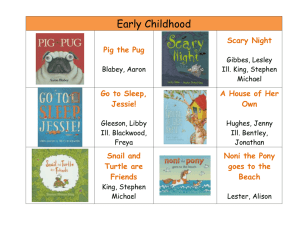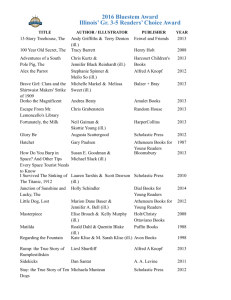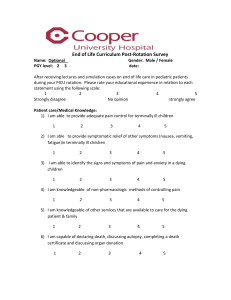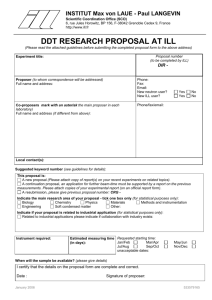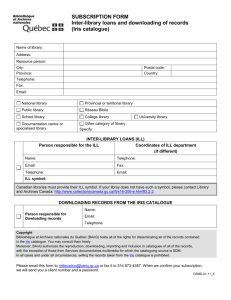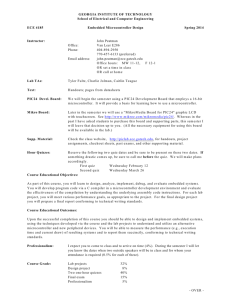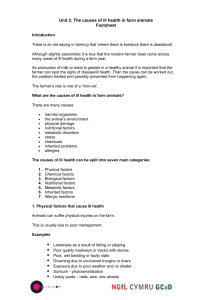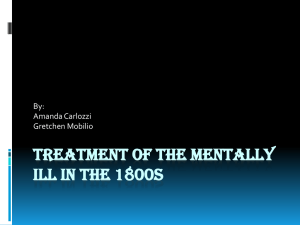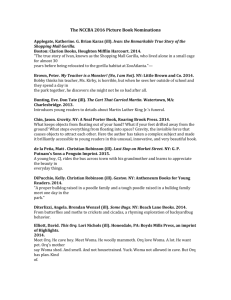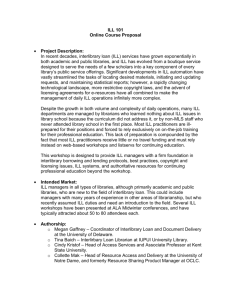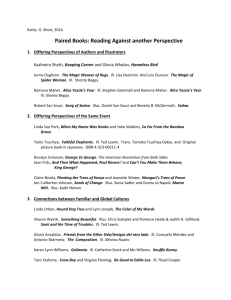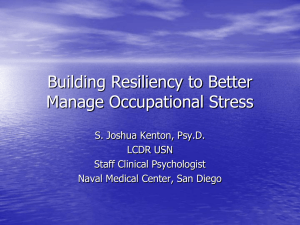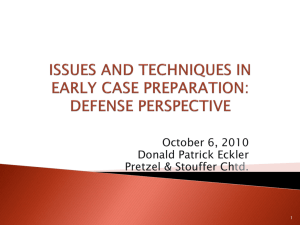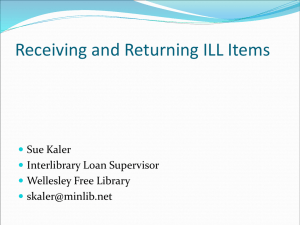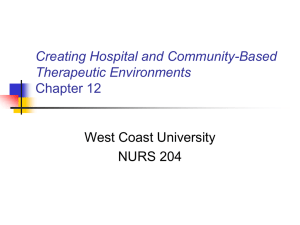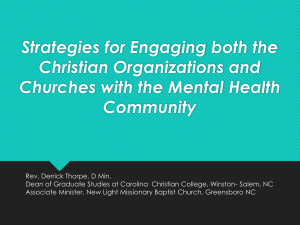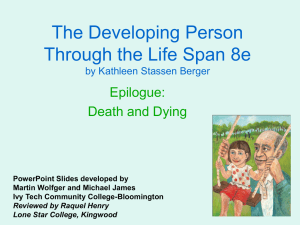14-08-29-溶入生命力的讀書方法(北港農工生命教育研習).
advertisement
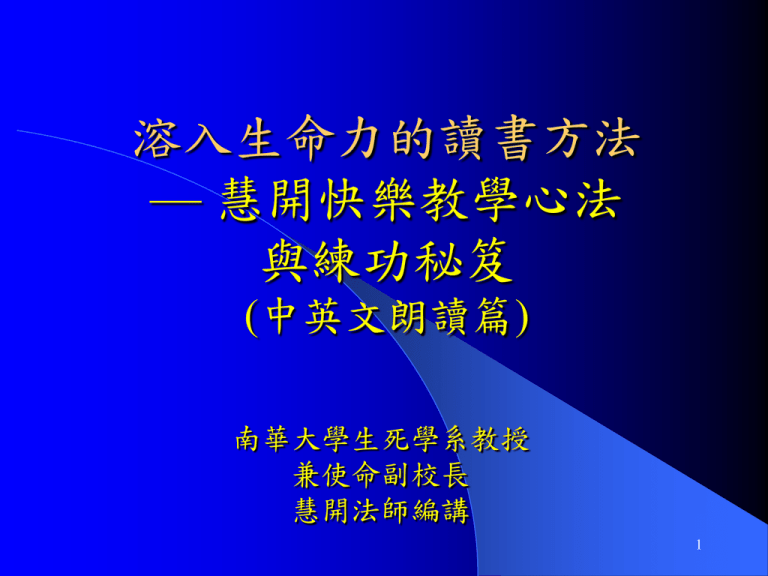
溶入生命力的讀書方法 — 慧開快樂教學心法 與練功秘笈 (中英文朗讀篇) 南華大學生死學系教授 兼使命副校長 慧開法師編講 1 從「教改」談起… 2 捨本逐末 治絲益棼 3 君子務本, 本立而道生。 4 學海無涯, 信為能入, 智為能渡, 勤為能住。 5 根據《華嚴經》的記載,釋迦牟尼佛在菩 提樹下靜坐思維,成等正覺之後,普觀法 界一切眾生而作是言︰「奇哉!奇哉!此 諸眾生,云何具有如來智慧,愚癡迷惑, 不知不見。我當教以聖道,令其永離妄想 執著,自於身中,得見如來廣大智慧,與 佛無異。」 6 這是釋迦佛陀大徹大悟之後,正面地肯 定大地所有眾生都有如來智慧德相;換 言之,一切眾生皆有「佛性」,也就是 成佛的潛能。但是因為眾生累積了很多 無明煩惱與妄想執著而不能證得,因此 就有待佛陀的開示、啟發與教導,引導 眾生破迷啟悟。 7 南華大學的教育理念: 以生命力帶動生命力 教師以生命力貫注於教育歷程與教學活 動之中,啟發帶動學生以生命力溶入己 身的成長歷程與學習活動之中。 我們希望南華大學所培養出來的學生, 於己能夠安身立命,成為社會安定的基 石;於人能夠關懷世界,並且有能力服 務大眾,成為社會的中流砥柱。 8 慧開教學心法解密 9 《楞嚴經》云:「此方真教體,清淨在 音聞,欲取三摩提,實以聞中入。」 娑婆世界的眾生,耳根最利,因此充分 運用「耳根的聽聞功能」 ,以此切入「 正念現前」的修行,而達到「一心不亂 」的意識及心理狀態,其實是一種簡捷 卻極有功效的微妙法門。 佛法的「聞、思、修」三慧,就是建立 在這樣的基礎之上。雖然廣義的「聞」 慧包括五根的「見聞覺知」,但仍然以 「耳根的聽聞」為主體。 10 古德云:「書不成誦,無以致思索之 功;書不精思,無以得義理之益。」 朗讀與記誦文章(或經文),其實是一 種思想內化的具體基本功夫。 朗誦文章的要領在於“relax, enjoy & appreciate”。 記誦文章的心法秘訣,不再於死記, 而在於高聲地「反覆誦念」,而且要 能夠「一氣呵成」,久久功深,一心 不亂,文章自然內化於心中。 11 子曰:「學而時習之,不亦悅乎!」 子曰:「我非生而知之者,好古,敏以 求之者也。」 子曰:「學如不及,猶恐失之!」 Learning, real learning, goes on only through active participation. (Quoted from Word Power Made Easy.) 練武不練功,到老一場空。 絕招、絕招,練絕成招。 12 教學心法: 菩薩四無礙辯 13 據《俱舍論》所載,四無礙辯為: 法無礙,謂善能詮表,領悟法之名句、 文章,並能決斷無礙; 義無礙,謂能精通於法所詮表之義理, 並能決斷無礙; 辭無礙,謂能精通各種地方方言,而能 無礙自在地表達; 辯無礙,謂能隨順正理而宣揚無礙;或 能隨順對方之願求而樂於為之巧說,故 亦稱樂說無礙。 14 在此試舉國文科之教學為例,以說明四 無礙辯對於教師的啟示,以及如何將其 運用於一般課堂教學之中: 法無礙:即是指教師對於一篇文章,其 中生字之字義(形、音、義的辨正)、文 體、題解大意、作者生平、寫作背景… 等知識,通達無礙。 義無礙:即是指教師對於一篇文章之內 容,作者之思想及感情,其所欲表達之 意境與精神,能心領神會,閱讀其文有 如面對其人。 15 教師透過文字與文義的解析,引導學生 理解、欣賞與領會文章的旨趣,而能融 入作者的心靈世界,神交古人,而與古 人為友。左宗棠之言:「開口能言天下 事,讀書先得古人心」,此之謂也。 辭無礙:即是指教師能說理清晰,譬喻 善巧,語言的表達與文辭的修養,皆能 通達無礙,而能令學生歡喜信受,引導 其深入文字寶藏而法喜充滿。 樂說無礙:即是指教師的專業修養,有 教學不厭,誨人不倦的精神。 16 譬如同樣一篇文章,可能同時要教好幾個 班級,或者連續教了幾年,如何能夠在每 一堂課上,都能熱情洋溢,而不致淪為炒 冷飯,就需要有樂說無礙的精神與修養。 其實,四無礙辯不惟應用在國文科之教學 上,任何領域、學門或科目之教學,均可 運用。要之,教師須有教學之熱忱,對於 自己所任教之學科或專業,必須先要有熱 情與感動,即如孔子所云:「己欲立而立 人,己欲達而達人。」否則連自我都感動 不了,如何能夠感動得了學生? 17 神交古人 瑞典漢學家現身說法 18 高本漢 (Klas Bernhard Johannes Karlgren, 1889~1978) 馬悅然 (Goran Malmqvist, 1924~) 羅多弼 (Torbjörn Lodén,1947~) 19 20 21 22 23 古文朗誦舉隅 24 師說 韓愈 古之學者必有師。師者,所以傳道、受業 、解惑也。人非生而知之者,孰能無惑? 惑而不從師,其為惑也,終不解矣。 生乎吾前,其聞道也,固先乎吾,吾從而 師之。生乎吾後,其聞道也,亦先乎吾, 吾從而師之。吾師道也,夫庸知其年之先 後生於吾乎?是故無貴,無賤,無長,無 少,道之所存,師之所存也。 25 嗟乎!師道之不傳也久矣!欲人之無惑 也難矣!古之聖人,其出人也遠矣,猶 且從師而問焉。今之眾人,其下聖人也 亦遠矣,而恥學於師。是故聖益聖,愚 益愚,聖人之所以為聖,愚人之所以為 愚,其皆出於此乎? 26 陋室銘 劉禹錫 山不在高,有仙則名,水不在深,有龍 則靈。斯是陋室,唯吾德馨。苔痕上階 綠,草色入簾青。談笑有鴻儒,往來無 白丁。可以調素琴,閱金經。無絲竹之 亂耳,無案牘之勞形。南陽諸葛廬,西 蜀子雲亭。孔子云:「何陋之有?」 27 岳陽樓記 范仲淹 慶曆四年春,滕子京謫守巴陵郡。越 明年,政通人和,百廢具興,乃重修 岳陽樓,增其舊制,刻唐賢今人詩賦 于其上,屬予作文以記之。 予觀夫巴陵勝狀,在洞庭一湖。銜遠 山,吞長江,浩浩湯湯,橫無際涯; 朝暉夕陰,氣象萬千;此則岳陽樓之 大觀也,前人之述備矣。然則北通巫 峽,南極瀟湘,遷客騷人多會於此, 覽物之情,得無異乎? 28 若夫霪雨霏霏,連月不開;陰風怒號,濁 浪排空;日星隱耀,山嶽潛形;商旅不行 ,檣傾楫摧;薄暮冥冥,虎嘯猿啼;登斯 樓也,則有去國懷鄉,憂讒畏譏,滿目蕭 然,感極而悲者矣! 至若春和景明,波瀾不驚,上下天光,一 碧萬頃;沙鷗翔集,錦鱗游泳,岸芷汀蘭 ,鬱鬱青青。而或長煙一空,皓月千里, 浮光躍金,靜影沈璧,漁歌互答,此樂何 極!登斯樓也,則有心曠神怡,寵辱偕忘 、把酒臨風,其喜洋洋者矣! 29 嗟夫!予嘗求古仁人之心,或異二者之 為,何哉?不以物喜,不以己悲,居廟 堂之高,則憂其民;處江湖之遠,則憂 其君。是進亦憂,退亦憂;然則何時而 樂耶?其必曰:「先天下之憂而憂,後 天下之樂而樂矣!」噫!微斯人,吾誰 與歸!時六年九月十五日。 30 前出師表 諸葛亮 臣亮言:先帝創業未半,而中道崩殂; 今天下三分,益州疲敝,此誠危急存亡 之秋也。然侍衛之臣,不懈於內;忠志 之士,忘身於外者:蓋追先帝之殊遇, 欲報之于陛下也。誠宜開張聖聽,以光 先帝遺德,恢弘志士之氣;不宜妄自菲 薄,引喻失義,以塞忠諫之路也。 31 諫太宗十思疏 魏徵 臣聞求木之長者,必固其根本;欲流之遠 者,必浚其泉源;思國之安者,必積其德 義。源不深而豈望流之遠,根不固而何求 木之長。德不厚而思國之治,雖在下愚, 知其不可,而況於明哲乎!人君當神器之 重,居域中之大,將崇極天之峻,永保無 疆之休。不念於居安思危,戒貪以儉,德 不處其厚,情不勝其欲,斯亦伐根以求木 茂,塞源而欲流長者也。 32 教戰守策 蘇東坡 夫當今生民之患,果安在哉?在於知安 而不知危,能逸而不能勞。此其患不見 於今,而將見於他日。今不為之計,其 後將有所不可救者。 昔者先王知兵之不可去也,是故天下雖 平,不敢忘戰。秋冬之隙,致民田獵以 講武,教之以進退坐作之方,使其耳目 習於鐘鼓旌旗之間而不亂,使其心志安 於斬刈殺伐之際而不懾。是以雖有盜賊 之變,而民不至於驚潰。 33 赤壁賦 蘇東坡 蘇子曰:「客亦知夫水與月乎?逝者如斯, 而未嘗往也;盈虛者如彼,而卒莫消長也。 蓋將自其變者而觀之,而天地曾不能一瞬; 自其不變者而觀之,則物於我皆無盡也。而 又何羨乎?且夫天地之間,物各有主。苟非 吾之所有,雖一毫而莫取。惟江上之清風, 與山間之明月,耳得之而為聲,目遇之而成 色。取之無禁,用之不竭。是造物者之無盡 藏也,而吾與子之所共適。」 34 英文教學經驗分享 — 教材與教法舉隅 35 英文閱讀與理解的兩大關卡: 1. 文法 (中英文句型結構的差異) 2. 語彙 (意指與意涵的析辨) 突破英文閱讀與理解的武林秘笈: 1. Word Power Made Easy 2. 《文法寶典》 3. 《新標準英文法》 36 37 38 39 40 41 When you have finished working with this book, you will no longer be the same person. You can’t be. If you honestly read every page, if you do every exercise, if you take every test, if you follow every principle, you will go through an intellectual experience that will effect a radical change in you. 42 43 Increasing your vocabulary does not mean merely learning the definitions of large numbers of obscure words; it does not mean memorizing scores of unrelated terms. What it means—What it can only mean— is becoming acquainted with the multitudinous and fascinating phenomena of human existence for which words are, obviously, only the verbal descriptions. 44 45 46 And you can increase your vocabulary— faster and easier than you may realize. Does this sound as if I am promising you the whole world in a neat package with a pretty pink ribbon tied around it? I am. And I am willing to make such an unqualified promise because I have seen what happens to those of my students who made sincere, methodical efforts to learn more, many more, words. 47 48 This book is designed to get you started building your vocabulary—effectively and at jet-propelled speed—by helping you regain the intellectual atmosphere, the keen, insatiable curiosity, the “powerful urge to learn” of your childhood. The organization of this book is based on two basic principles: 1) words are the verbal symbols of ideas, and 2) the more ideas you are familiar with, the more words you know. 49 50 I am not spouting airy theory. For over thirty five years, I have worked with thousands of adults in my college courses in vocabulary improvement, and I can state as a fact, and without qualification, that: If you can recapture the “powerful urge to learn” with which you were born, you can go on increasing your vocabulary at a prodigious rate. No matter what your present age. 51 不要完全相信翻譯 英文中譯誤謬舉隅 52 千萬不要相信坊間的英文中譯本,不論 是台灣或是大陸出版的,除非是理工商 業類的書籍(較不涉及英語文素養),否 則其誤謬之處與比例之高,俯拾即是, 遠遠超乎你的想像。 鼓勵大家一定要下足功夫,鍛鍊出直接 閱讀及理解英文學術論著的能力,有朝 一日,不但不必依賴中文譯本,而且還 有鑑別中譯本良窳的能力。 以下舉實例說明英文中譯本之誤謬。 53 關於照護的某些想法 (某書局中譯版) 醫學診斷的共同特性是針對患者的病症而 不是相關的疾病。病患對醫療的最大好處是被 用來進行處置,而實際上他們也只能從這種模 式得到照護。可是照護卻和診斷的類別無關; 醫療處置顯示病患的有價值是因為它讓醫生認 可到對的醫療經驗具有獨特性。一個人沒有權 利對別人進行有價值和無價值的分類,但是我 們有尊嚴來了解每個人都是獨特的。痛苦或失 落的專有名詞若是沒有用個人自己的經驗來感 受是無法顯現出它的實際。能夠見証那種特殊 經驗和認可所有的區別,就只有照護。 54 Some Thoughts about Caring The common diagnostic categories into which medicine places its patients are relevant to disease, not to illness. They are useful for treatment, but they only get in the way of care.… Caring has nothing to do with categories; it shows the person that her life is valued because it recognizes what makes her experience particular. 55 One person has no right to categorize another, but we do have the privilege of coming to understand how each of us is unique.… Terms like pain or loss have no reality until they are filled in with an ill person’s own experience. Witnessing the particulars of that experience, and recognizing all its differences, is care. 56 誤謬析辨 The common diagnostic categories into which medicine places its patients are relevant to disease, not to illness. 醫學診斷的共同特性是針對患者的病症而 不是相關的疾病。 They are useful for treatment, but they only get in the way of care.… 病患對醫療的最大好處是被用來進行處置 ,而實際上他們也只能從這種模式得到照 護。 57 Caring has nothing to do with categories; it shows the person that her life is valued because it recognizes what makes her experience particular. 可是照護卻和診斷的類別無關;醫療處 置顯示病患的有價值是因為它讓醫生認 可到對的醫療經驗具有獨特性。 58 One person has no right to categorize another, but we do have the privilege of coming to understand how each of us is unique. 一個人沒有權利對別人進行有價值和無價 值的分類,但是我們有尊嚴來了解每個人 都是獨特的。 59 Terms like pain or loss have no reality until they are filled in with an ill person’s own experience. 痛苦或失落的專有名詞若是沒有用個人自 己的經驗來感受是無法顯現出它的實際。 Witnessing the particulars of that experience, and recognizing all its differences, is care. 能夠見證那種特殊經驗和認可所有的區別 ,就只有照護。 60 不要完全依賴英漢字典 還需要查詢英英字典 61 學語文當然必須要藉助於字典,而且要勤 查字典,現在有各式各樣的電子版及網路 線上版字典,讓學習語文更為方便。 中英文字詞及語彙皆有意指(denotation)與 意涵(connotation)的析辨,而這卻是英漢 字典及漢英辭典所無法提供的,就必須查 詢純英文字典或純中文辭典。 英漢字典只能作為參考,不能完全依賴, 遇到英文字義相近的情況,英漢字典解決 不了問題,就必須查閱英英字典,例如: 62 dis·ease n. 1. A pathological condition of a part, an organ, or a system of an organism resulting from various causes, such as infection, genetic defect, or environmental stress, and characterized by an identifiable group of signs or symptoms. 2. A condition or tendency, as of society, regarded as abnormal and harmful. 3. Obsolete. Lack of ease; trouble. [Middle English disese, from Old French : des-, dis- + aise, ease; see EASE.] 63 ill adj. 1. Not healthy; sick: I began to feel ill last week. 2. Not normal; unsound: an ill condition of body and mind. 3. Resulting in suffering; distressing: ill effects. 4.a. Having evil intentions; hostile or unfriendly: You certainly did me an ill turn. b. Ascribing an objectionable quality: holds an ill view of that political group. c. Harmful; cruel. 5. Not favorable; unpropitious: ill predictions. 6. Not measuring up to recognized standards of excellence, as of behavior or conduct. [Middle English, from Old Norse ºllr, bad.] 64 訂正 The common diagnostic categories into which medicine places its patients are relevant to disease, not to illness. 一般醫療診斷的類別,亦即醫學對病人所 做的分類,這些類別是與(病理上的)病症 有關,而非與(身心感受上的)疾病有關。 They are useful for treatment, but they only get in the way of care.… 這些類別對於治療是有用的,但是卻只會 妨礙到照顧…。 65 Caring has nothing to do with categories; it shows the person that her life is valued because it recognizes what makes her experience particular. 照顧與(病症的)類別無關;它對病人顯 示出她的生命是有價值的,因為它(照 顧)認知到她的經驗之所以獨特的內涵 。 66 One person has no right to categorize another, but we do have the privilege of coming to understand how each of us is unique. 一個人沒有權利對他人作分類,但是我 們的確有「去了解何以我們每一個人都 是獨特的」之權利。 67 Terms like pain or loss have no reality until they are filled in with an ill person’s own experience. 就像是痛苦或失落這些詞語並無實義,除 非以一個病人的親身經驗注入這些詞語之 中。 Witnessing the particulars of that experience, and recognizing all its differences, is care. 見證到那種經驗的各個特殊面向,同時認 知到其間所有的差異,才是照顧。 68 關於照顧的一些思考 (慧開版) 一般醫療診斷的類別,亦即醫學對病人所做的 分類,這些類別是與(病理上的)病症有關,而非 與(身心感受上的)疾病有關。這些類別對於治療 是有用的,但是卻只會妨礙到照顧…。照顧與分 類無關;它對病人顯示出她的生命是有價值的, 因為它(照顧)認知到她的經驗之所以獨特的內涵 。一個人沒有權利對他人作分類,但是我們的確 有「去了解何以我們每一個人都是獨特的」之權 利。就像是痛苦或失落這些詞語並無實義,除非 以一個病人的親身經驗注入這些詞語之中。見證 到那種經驗的各個特殊面向,同時認知到其間所 有的差異,才是照顧。 69 學術英文解讀舉隅 70 Dying is a lonely passage in that no one can “live through” the experience of terminal illness for another. Yet dying is also a social passage. What happens to anyone defined as dying is affected by the actions and choices of the other people who comprise his or her social world. (Cassell, 1974) 71 死亡是個孤單的過程,於此中無人能代 替他人“活過”末期疾病的經驗。 然而死亡也是個社會歷程,會發生在被 認定為臨終者身上的事情,會受到其他 人—亦即構成臨終者的社會世界之所有 人等—的行為與抉擇之影響。 72 In modern urbanized societies, the process of dying has shifted from the moral to the technical sphere of control, and the care of dying persons has increasingly become an institutionalized and depersonalized phenomenon. (Cassell, 1974) 在現代都會化的社會中,臨終的過程已 經從倫理道德轉移到科技掌控的場域, 而且臨終者的照顧已經變成一種愈來愈 機制化與去個人化的現象。 73 Patients who have intractable pain or other terminal distress from malignant disease and the elderly with deteriorating illnesses or diminishing powers are the two groups who are most often referred to in the literature demanding the legalization of some form of voluntary euthanasia. 74 It is claimed that the only way in which they can die with peace and dignity is for them to be given, when they ask and with due formalities and safeguards, a lethal injection. It is taken for granted that many will ask, and the complex issues behind this suggestion are rarely explored. 75 英文朗誦舉隅 76 The Gettysburg Address Abraham Lincoln Gettysburg, Pennsylvania November 19, 1863 77 Four score and seven years ago our fathers brought forth on this continent, a new nation, conceived in Liberty, and dedicated to the proposition that all men are created equal. Now we are engaged in a great civil war, testing whether that nation, or any nation so conceived and so dedicated, can long endure. 78 Inaugural Address John F. Kennedy Washington D.C. January 20, 1961 79 We observe today not a victory of party, but a celebration of freedom—symbolizing an end, as well as a beginning—signifying renewal, as well as change. For I have sworn before you and Almighty God the same solemn oath our forebears prescribed nearly a century and three-quarters ago. 80 The world is very different now. For man holds in his mortal hands the power to abolish all forms of human poverty and all forms of human life. And yet the same revolutionary beliefs for which our forebears fought are still at issue around the globe—the belief that the rights of man come not from the generosity of the state, but from the hand of God. 81 三十四年「教」與「學」 的經驗及心得 82 韓愈:師者,所以傳道、授業、解惑也。 教學的三個目標: 一、學生學習動機的啟發 二、學生學習方法的指引 三、學生學習能力的提升 教學的三層境界: 一、知識的傳遞 二、經驗的傳授 三、心法的傳承 (太極拳大家鄭曼青之例) 83 子曰:「我非生而知之者,好古敏以求之 者也。」 學與無學 (learn and unlearn): 匠氣與超越 (朱銘師事楊英風之例) 練就上乘武功的心法口訣: 1. 練武不練功,到老一場空。 2. 絕招、絕招,練絕成招。 學好中英文的心法口訣: 1. Relax, enjoy, and appreciate! 2. Practice makes perfect. 84 冬 不 為 你 困 頓 秋 不 為 你 惆 悵 夏 不 為 你 戀 棧 春 不 為 你 停 留 甚 抑 無 或 或 論 立 志 勵 志 窮 忙 瞎 忙 閒 閒 無 事 志 志 成 功 忙 忙 一 片 縱 有 春 夏 秋 冬 四 季 輪 轉 交 替 寰 宇 蒼 穹 下 生 命 之 歌 文 慧 開 法 師 \ 清 閒 悠 閒 生 命 的 腳 步 從 未 曾 停 留 85 死 不 因 你 而 少 一 分 病 不 因 你 而 多 一 分 老 不 因 你 而 減 一 分 生 不 因 你 而 加 一 分 甚 抑 無 或 或 論 恩 悲 喜 怨 歡 怒 情 離 哀 仇 合 樂 生 命 的 戲 碼 卻 永 不 謝 幕 高 低 上 下 出 入 其 間 容 有 貴 賤 賢 愚 芸 芸 眾 生 裡 86 是 生 是 寂 命 苦 之 是 歌 是 滅 綿 樂 綿 道 不 轉 行 絕 念 即 便 成 是 生 命 之 路 迢 迢 無 盡 87 88 89 慧開法師電子信箱 hk84000@mail.nhu.edu.tw 台灣生死輔導學會秘書陳小姐 hlchen16@hotmail.com 90 敬祝大家 福慧雙修‧生死自在 謝謝聽講 91
